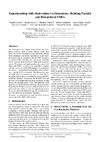Identificador persistente para citar o vincular este elemento:
https://accedacris.ulpgc.es/jspui/handle/10553/56246
| Campo DC | Valor | idioma |
|---|---|---|
| dc.contributor.author | Galtier, Virginie | en_US |
| dc.contributor.author | Ianotto, Michel | en_US |
| dc.contributor.author | Caujolle, Mathieu | en_US |
| dc.contributor.author | Corniglion, Rémi | en_US |
| dc.contributor.author | Tavella, Jean-Philippe | en_US |
| dc.contributor.author | Evora Gomez,Jose | en_US |
| dc.contributor.author | Hernández Cabrera, José Juan | en_US |
| dc.contributor.author | Reinbold, Vincent | en_US |
| dc.contributor.author | Kremers, Enrique | en_US |
| dc.date.accessioned | 2019-07-26T10:22:53Z | - |
| dc.date.available | 2019-07-26T10:22:53Z | - |
| dc.date.issued | 2017 | en_US |
| dc.identifier.isbn | 978-91-7685-575-1 | en_US |
| dc.identifier.issn | 1650-3686 | en_US |
| dc.identifier.uri | https://accedacris.ulpgc.es/handle/10553/56246 | - |
| dc.description.abstract | The development of complex multi-domain and multi-physic systems, such as Smart Electric Grids, havegiven rise to new challenges in the simulation domain.These challenges concern the capability to couple multi-ple domain-specific simulators, and the FMI standard isan answer to this. But they also concern the scalabilityand the accuracy of the simulation within an heterogenoussystem. We propose and implement here the concept of aMatryoshka FMU, i.e. a first of its kind FMU compliantwith the version 2.0 of the FMI standard. It encapsulatesDACCOSIM– our distributed and parallel master architec-ture – and the FMUs it controls. The Matryoshka auto-matically adapts its internal time steps to ensure the re-quired accuracy while it is controlled by an external FMU-compliant simulator. We present the JavaFMI tools andtheDACCOSIMmiddleware used in the automatic buildingprocess of such Matryoshka FMUs. This approach is thenapplied on a real-life Distributed Energy System scenario.Regarding the Modelica system simulated in Dymola, im-provements up to 250% in terms of computational perfor-mance are achieved while preserving the simulation accu-racy and enhancing its integration capability. | en_US |
| dc.language | eng | en_US |
| dc.relation.ispartof | Linköping electronic conference proceedings | en_US |
| dc.source | Proceedings of the 12th International Modelica Conference / Andreas Nicolai; Anne Paepcke (ed.), May 15-17, 2017, Prague, Czech Republic. p. 663-671 | en_US |
| dc.subject | 33 Ciencias tecnológicas | en_US |
| dc.subject.other | Co-simulation tool | en_US |
| dc.subject.other | Multi-threaded execution | en_US |
| dc.subject.other | Master algorithm | en_US |
| dc.subject.other | FMU | en_US |
| dc.subject.other | FMI standard | en_US |
| dc.title | Experimenting with Matryoshka co-simulation: building parallel and hierarchical FMUs | en_US |
| dc.type | info:eu-repo/semantics/conferenceObject | en_US |
| dc.type | ConferenceObject | en_US |
| dc.identifier.doi | 10.3384/ecp17132663 | en_US |
| dc.description.lastpage | 671 | - |
| dc.description.firstpage | 663 | - |
| dc.relation.volume | 132 | - |
| dc.investigacion | Ingeniería y Arquitectura | en_US |
| dc.type2 | Actas de congresos | en_US |
| dc.utils.revision | Sí | en_US |
| dc.identifier.ulpgc | Sí | es |
| item.fulltext | Con texto completo | - |
| item.grantfulltext | open | - |
| crisitem.author.dept | GIR SIANI: Inteligencia Artificial, Redes Neuronales, Aprendizaje Automático e Ingeniería de Datos | - |
| crisitem.author.dept | IU de Sistemas Inteligentes y Aplicaciones Numéricas en Ingeniería | - |
| crisitem.author.dept | Departamento de Informática y Sistemas | - |
| crisitem.author.dept | GIR SIANI: Inteligencia Artificial, Redes Neuronales, Aprendizaje Automático e Ingeniería de Datos | - |
| crisitem.author.dept | IU de Sistemas Inteligentes y Aplicaciones Numéricas en Ingeniería | - |
| crisitem.author.dept | Departamento de Informática y Sistemas | - |
| crisitem.author.orcid | 0000-0001-9348-7265 | - |
| crisitem.author.orcid | 0000-0003-2427-2441 | - |
| crisitem.author.parentorg | IU de Sistemas Inteligentes y Aplicaciones Numéricas en Ingeniería | - |
| crisitem.author.parentorg | IU de Sistemas Inteligentes y Aplicaciones Numéricas en Ingeniería | - |
| crisitem.author.fullName | Évora Gómez, José | - |
| crisitem.author.fullName | Hernández Cabrera, José Juan | - |
| Colección: | Actas de congresos | |
Visitas
93
actualizado el 10-ene-2026
Descargas
70
actualizado el 10-ene-2026
Google ScholarTM
Verifica
Altmetric
Comparte
Exporta metadatos
Los elementos en ULPGC accedaCRIS están protegidos por derechos de autor con todos los derechos reservados, a menos que se indique lo contrario.
